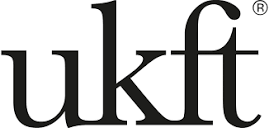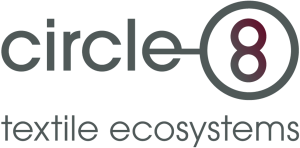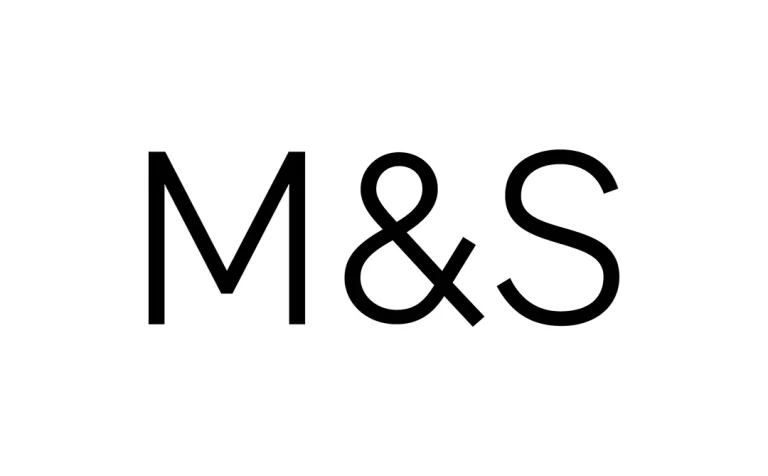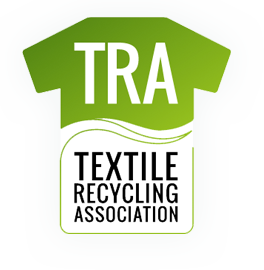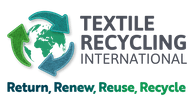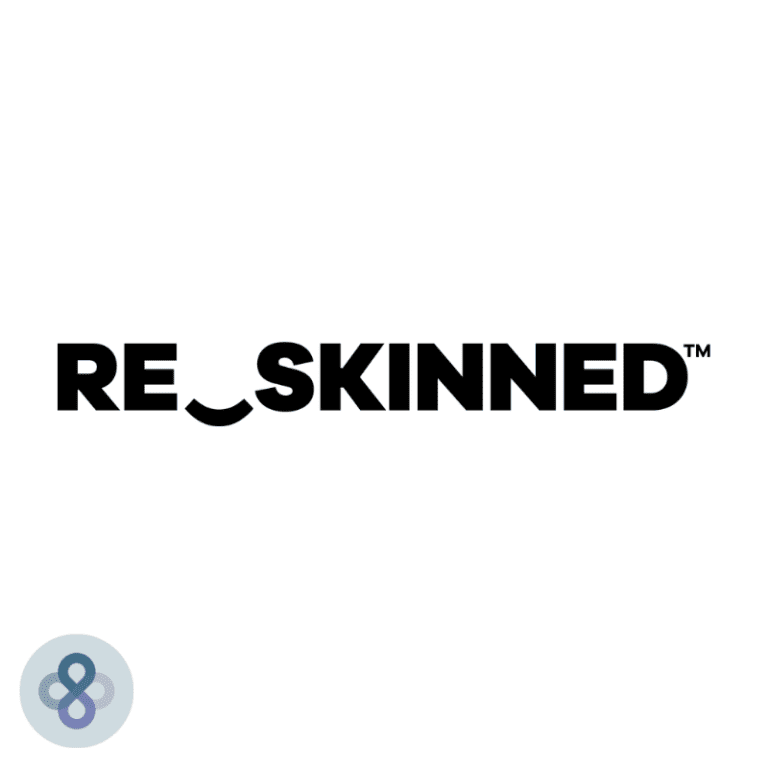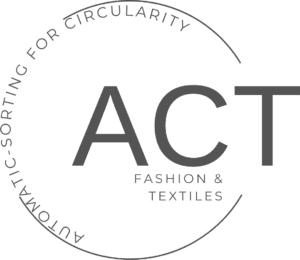ACT Take Back
Part of fashion’s future
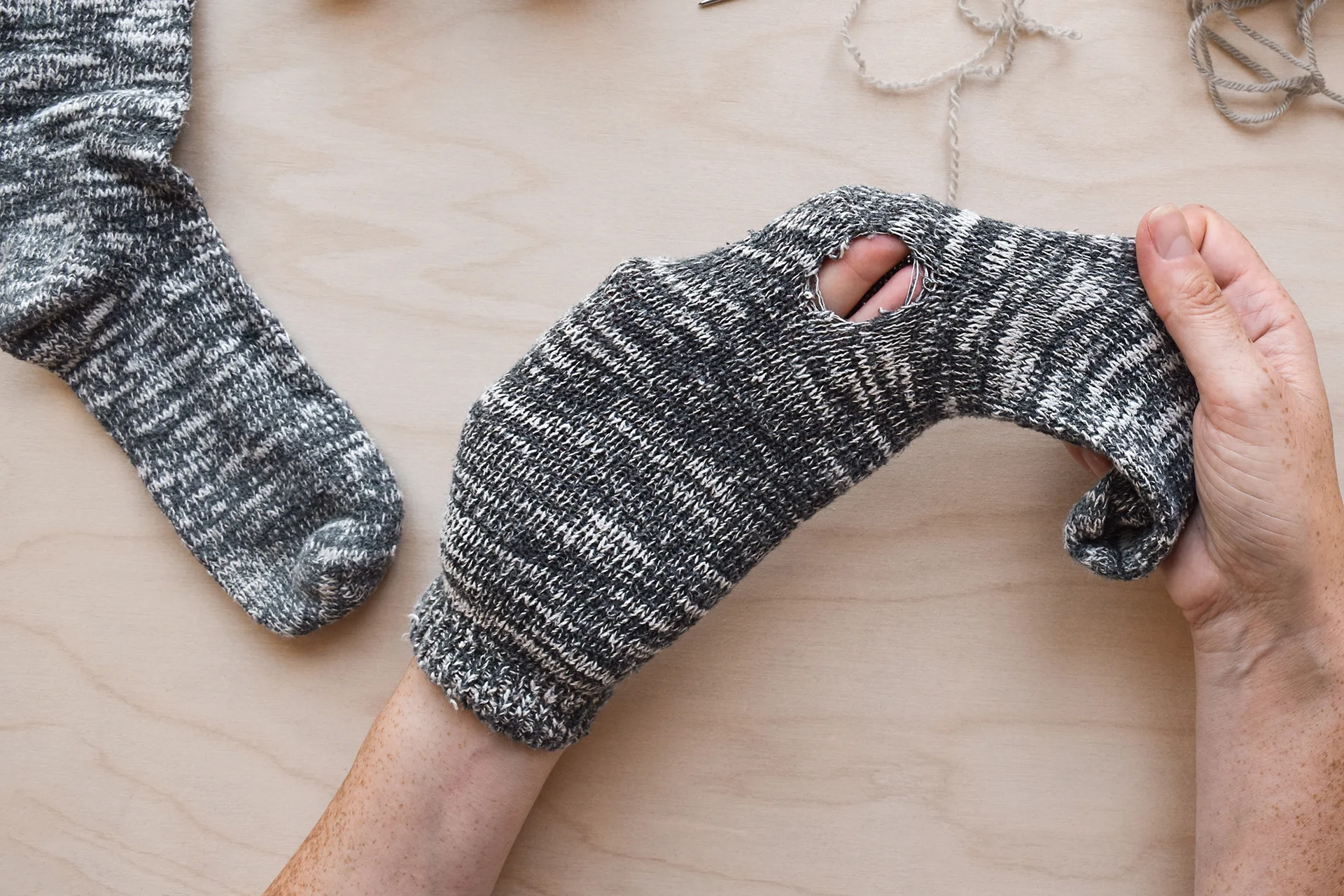
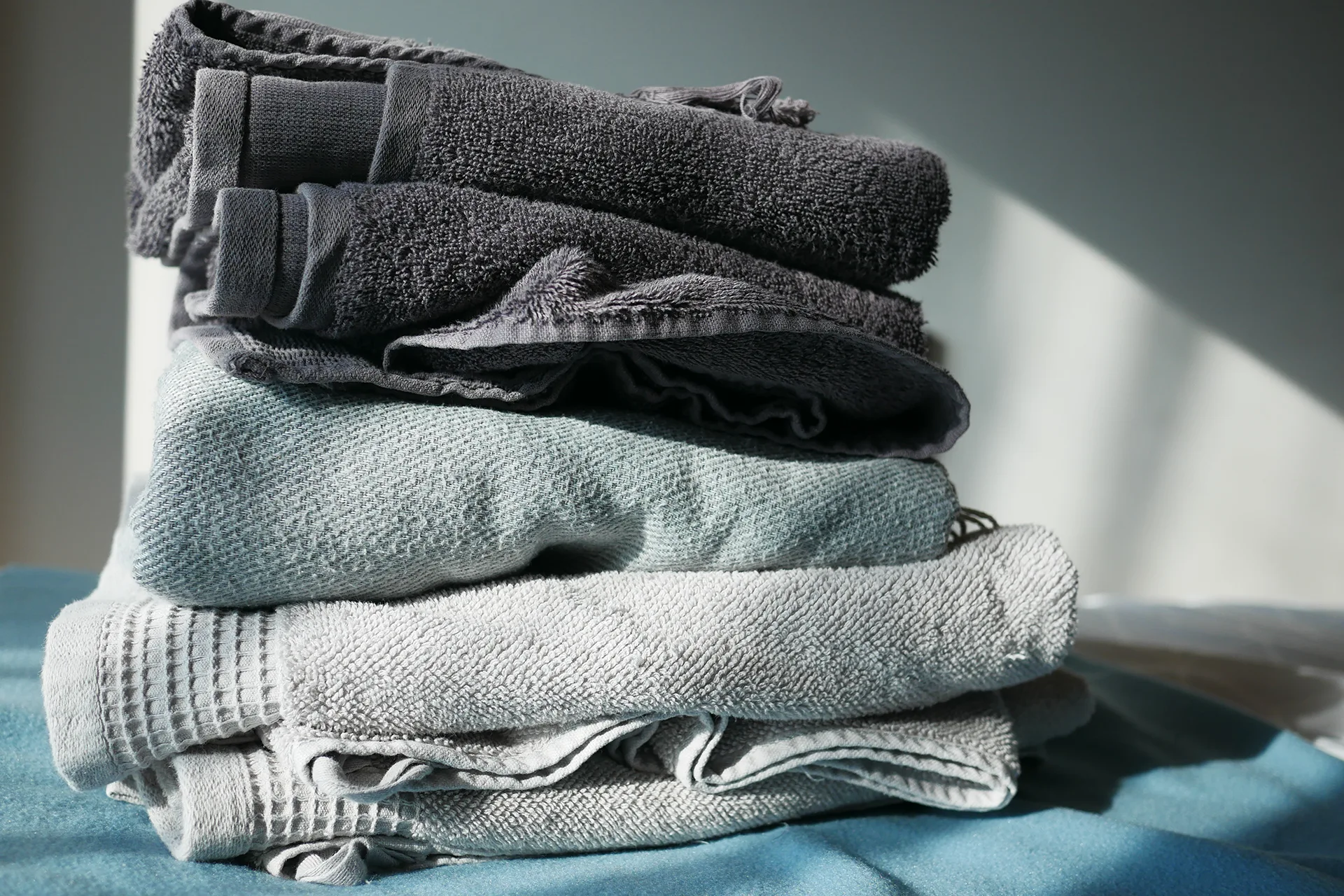
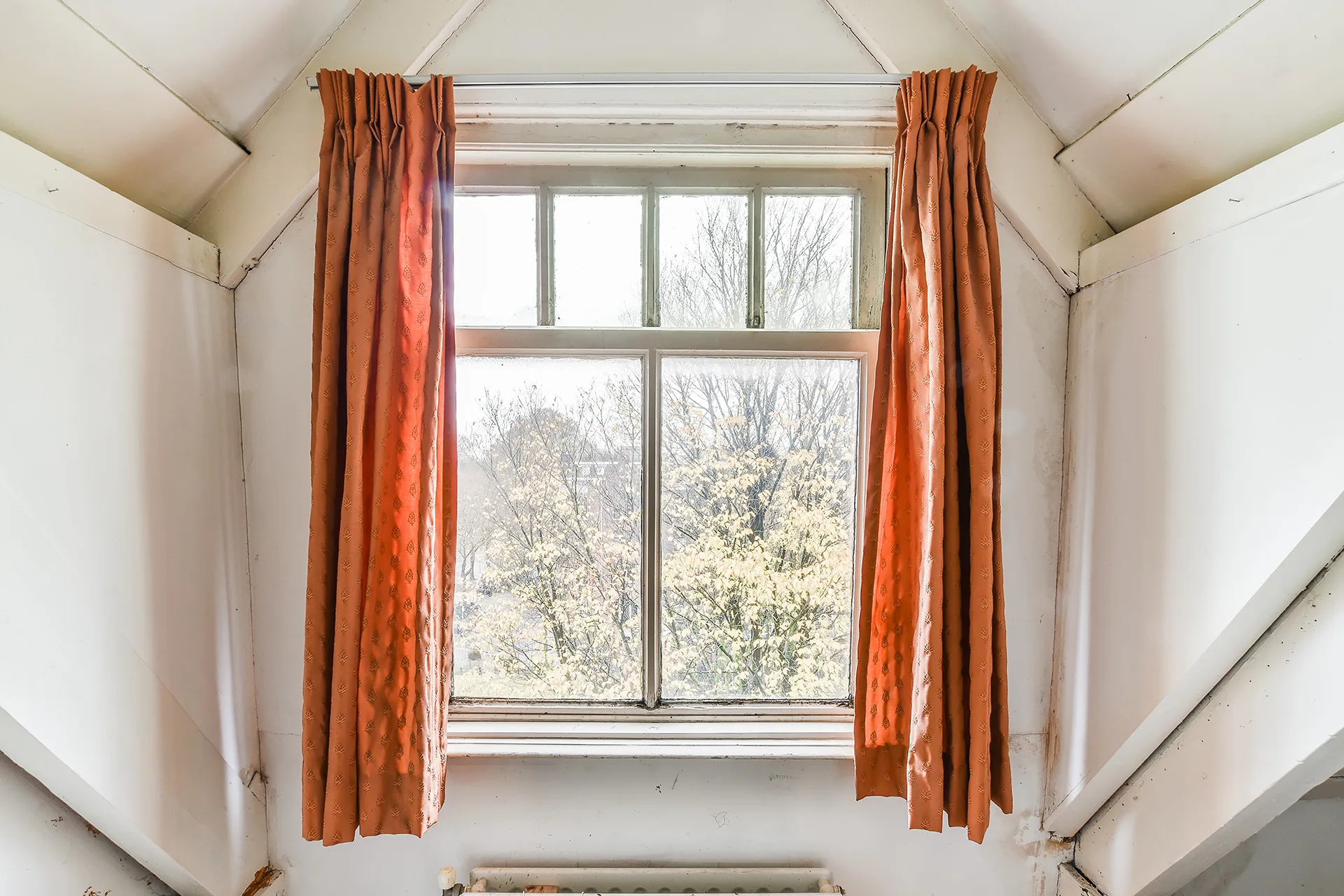
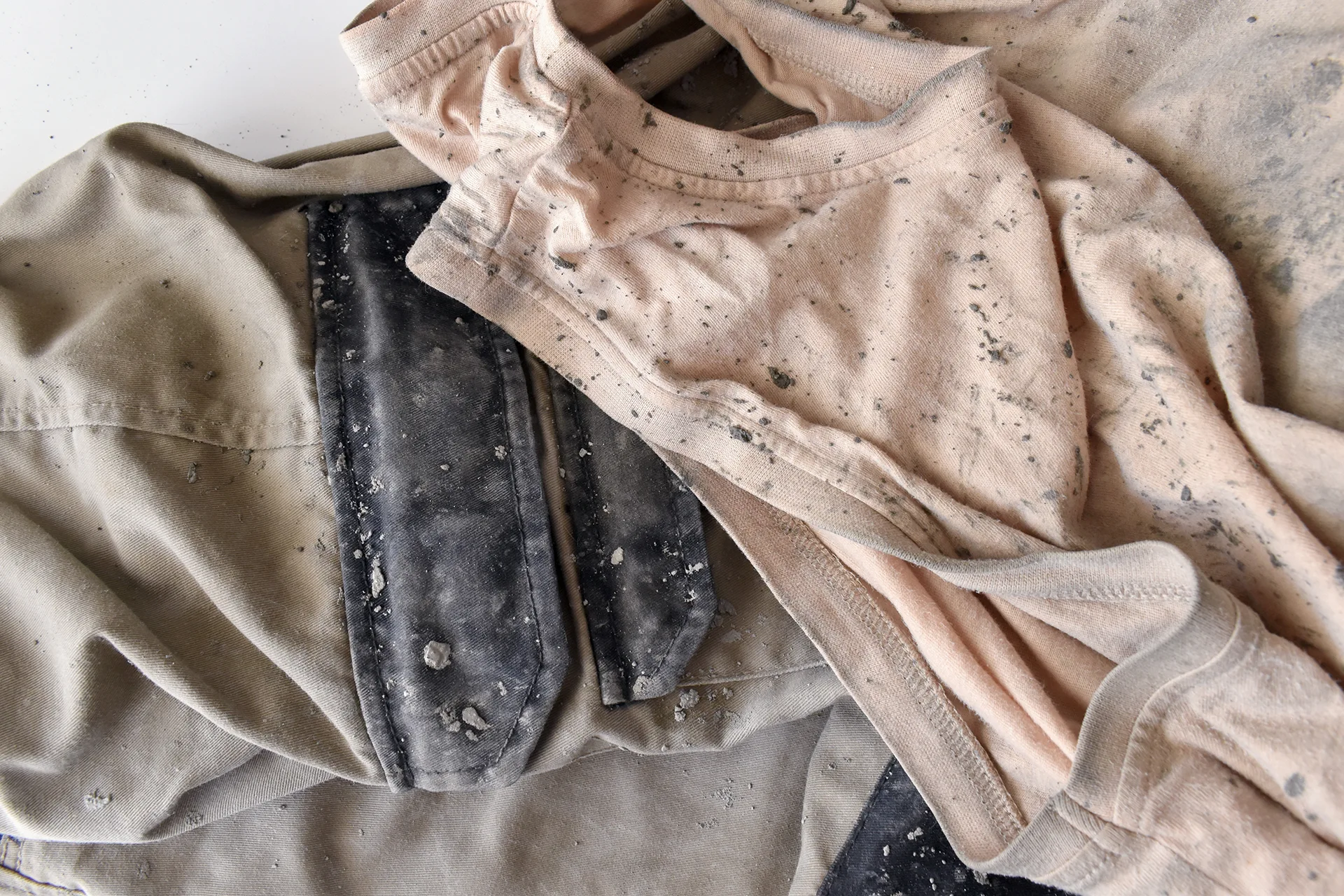
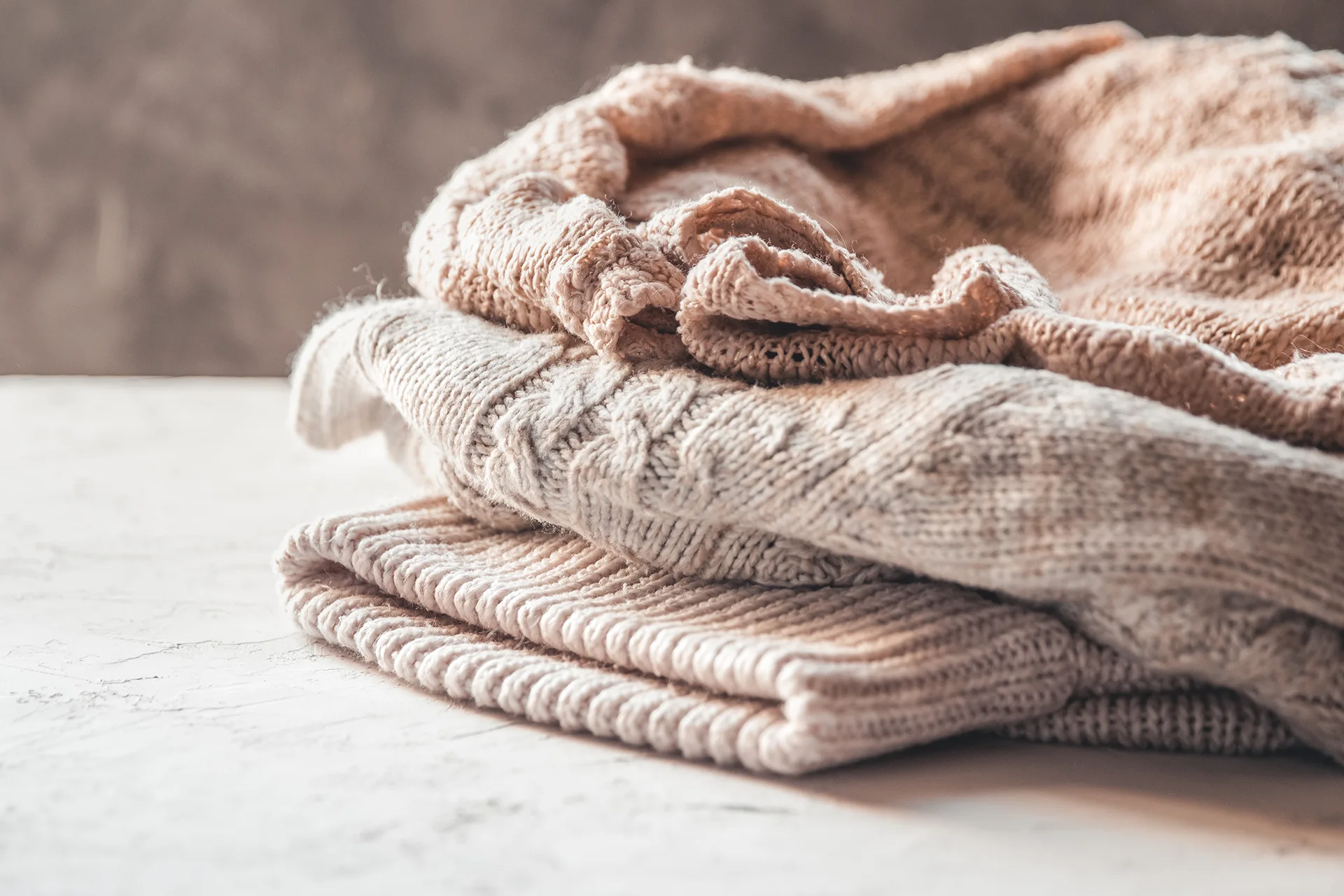
Every year, in the UK, 1.3 billion textile items (336,000 tonnes) end up in our household bins and are then incinerated or landfilled, contributing to global warming as they release carbon dioxide when they’re burnt or decompose.
If we could collect these worn-out clothes and send them to a facility that can automatically sort them, identify the fabric (cotton, polyester, wool etc.) and prepare them for recycling into new material, we could recycle them and make new clothes out of our old clothes – possibly right here in the UK.
To make automated sorting facilities and textile-to-textile recycling a reality in the short-term future, we need to increase the ways that we can donate non-reusable textiles for recycling.
To ensure the materials that go into making our clothes remain in continual circulation, we have launched the ‘ACT Take Back’ project, with the creation of collection trials to empower consumers to sort out and donate clothing and homeware textiles (such as towels, sheets, curtains etc.) that are no longer usable. The sorted worn-out textiles, in the future, could be sent to an automated sorting facility where they will be sorted and prepared for textile-to-textile recycling.
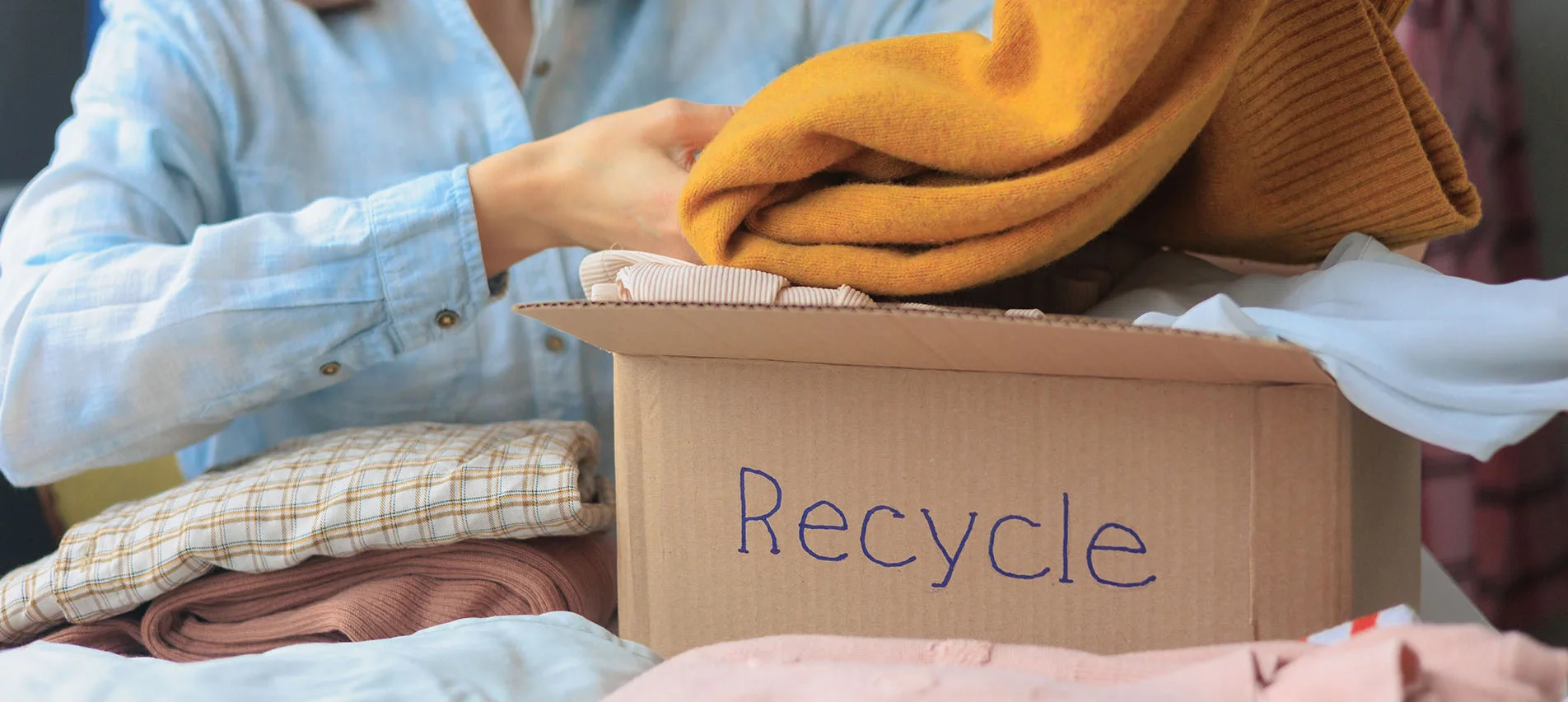
THE COLLECTION TRIALS
We have been running trials to find out the best ways to get worn-out clothes out of homes and into the sorting and recycling facility. We’ve discovered…
• The easiest ways for people to send their clothes to the sorting facility – clothes collection banks, postal services or something else
• The best words to use to help people decide what is reusable and what is non reusable
• If incentives can encourage more people to take part
• If targeted communications campaigns will help people understand what we’re asking and then respond positively
Postal Collection Trial
With Oxfam and Marks & Spencer
From April to July 2024 (trial now closed to participants)
Marks & Spencer, in partnership with Oxfam, ran a trial asking customers to give their unwearable clothes a second chance at life by donating them alongside their preloved wearable clothing. The online trial allowed M&S customers to order a free postal donation bag, made from 100% recycled plastic, straight to their doorstep. Customers then placed their preloved second-hand clothing inside the bag – separating between those that are wearable from unwearable – but equally too good to waste. This meant clothing which can’t be worn anymore because it is torn, stained, stretched or broken could have a second chance of life and be used for other means. Both Oxfam and M&S are working to support the ACT ‘Textile Waste Project’, which is led by the UK Fashion and Textile Association.
Oxfam continues to collect donations of rewearable clothing via their website. You can order a free online postal donation bag, crafted from 100% recycled plastic, and have it delivered directly to your doorstep by clicking the link below:https://www.oxfam.org.uk/donate/donate-by-post-for-free/

Retail Carpark Collection Trial
With Tesco and The Salvation Army (Salvation Army Trading Company Ltd.)
From March to October 2024
The trial started in February 2024 and the trial banks are still in place in the following locations:
- Tesco Superstore, Lakeview Drive, Bicester OX26 6WA
- Tesco Superstore, 71 High Street, Kidlington OX5 2DN
- Tesco Extra, Copdock Interchange, Ipswich IP8 3TS
- Tesco Superstore, Ropes Drive, Kesgrave IP5 2FU
- Tesco Superstore, Brook Retail Park, London Road, Clacton-On-Sea CO15 4EF
- Tesco Superstore, London Road, Tring HP23 5NB
- Tesco Superstore, Thorpe Road, Melton Mowbray LE13 1SQ
- Tesco Extra, Church Street, Lichfield WS13 6DZ
- Tesco Extra, Power Station Road, Rugeley WS15 2HS
- Tesco Extra, 1 Armada Way, Royal Dock Road, Beckton E6 7FB
- Tesco Extra, Bridge Road, Dover Corner, Rainham RM13 9YZ
- Tesco Superstore, Cedars Link Road, Stowmarket IP14 5BE
- Tesco Extra, Cygnet View, Lakeside, Grays RM20 1TX
- Tesco Extra, Anson Road, Martlesham Heath IP5 3RU
- Tesco Extra, 15-18 Viking Way, Bar Hill CB23 8EL
- Tesco Superstore, Cambridge Road Industrial Estate, Cambridge Road, Milton CB24 6AY
- Grantham Household Waste Recycling Centre, Alexandra Road NG31 7AH
- FCC Environment, Fengate Household Recycling Centre, Dodson House, Fengate PE1 5XG
Visitors to the above car parks can still use the Worn Out and Wear Again banks to donate their clothing but the data will no longer be recorded for the trial which is now concluded.
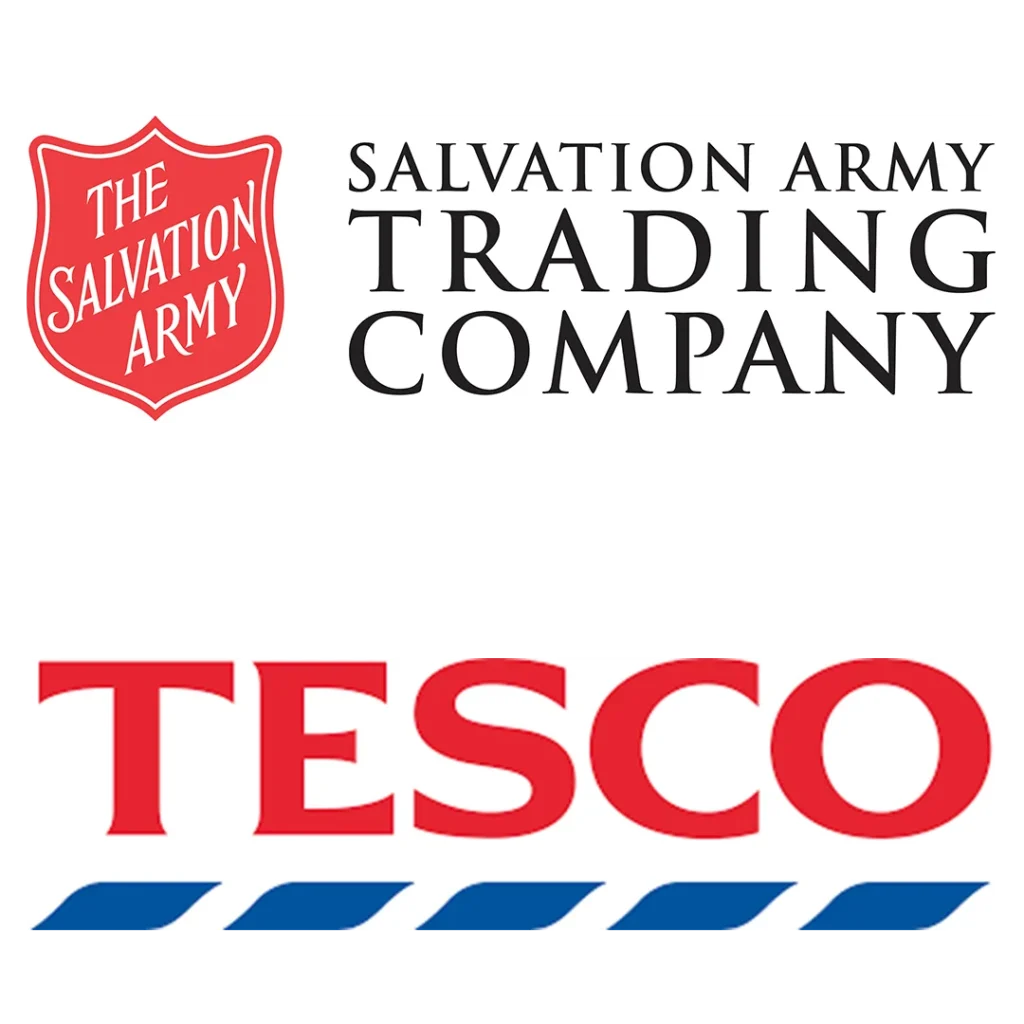
Retail in-store trial
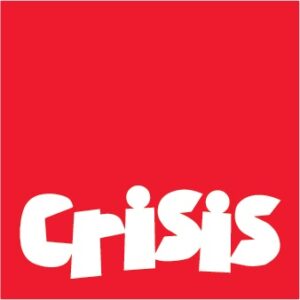
Crisis, a UK-wide charity helping people out of homelessness, ran a trial within two of its shops in London, Peckham and Elephant and Castle. Leaflets were given to all customers, and shop volunteers were trained to offer additional information to those donating clothing. This included specific instructions on how to sort donations into clothes that can be worn again and those that are worn out. Clothes pre-sorted by customers were placed into two collection boxes in the shops’ staff rooms. The clothes were sorted by staff and data collected on how the customers got on with separating their clothes. All clothes donated were resold by Crisis or sent for recycling.
Postal collection trial

Dunelm, the UK’S largest home retailer, partnered with The Salvation Army to offer a postal takeback service for home textiles and clothes to its customers. Those wishing to take part signed up via Dunelm.com to order a free shipping label, choose a courier and select a convenient place to drop off their unwanted home textiles and clothing. The label came with clear instructions on how to separate items that can be used again from those that are worn out and only good for recycling to help support the circular economy. The Salvation Army sorted the clothes and sent them for reuse or recycling. Although the trial has completed, Dunelm continues to offer the online takeback service to customers. Visit www.dunelm.com/info/about/take-back-scheme for more information.
Online takeback trial
With Reskinned
2 September 2024 – 31 October 2024
Reskinned, who provide circularity solutions for brands and consumers, encompassing takeback, resale/reuse and recycling, offered its customers the opportunity to send back their unwanted clothing via a custom designed online platform. Participants who met the trial criteria were rewarded with a £10 voucher to spend on the Reskinned website. The trial launched via email and original social media content. Clear instructions were given on how to decide if clothes can be worn again or if they’re worn out. Participants logged the clothes they wanted to send back, downloaded a postage label and sent them to Reskinned where they were sorted and either resold or recycled. Data was collated and analysed to assess how customers responded to instructions and whether they sorted correctly. Though the trial is now complete, Reskinned continues to offer the takeback service.
Find out more at www.takeback.reskinned.clothing/reskinned
Local Council trial

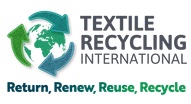
With Textile Recycling International and Kirklees Council
July – October 2024
Kirklees Council partnered with Textile Recycling International (TRI) to offer residents the opportunity to donate their worn-out clothes into specially designed clothes banks. TRI redesigned 10 pairs of clothes banks asking residents to sort out their worn-out clothing from the clothes that can be worn again and place them into the separate banks. TRI then sorted the clothing at their hub in Manchester and recorded whether residents sorted correctly. They then found resale options for the clothes in good condition and recycled those that were no longer wearable.
The team at Kirklees Council dropped leaflets to residents that had the new clothes banks nearby as well as posting announcements about the trial on local social media sites.
Locations of the new textile banks are:-
Location | Address |
Birkenshaw Community Hall | Bradford Road, Birkenshaw BD11 2DR |
Brighton Street WMC | Brighton Street, Heckmondwike WF16 9EY |
Dewsbury RLFC | Tetley Stadium, Owl Lane, Dewsbury WF12 9RH |
Edale Avenue | Edale Avenue, Newsome, Huddersfield HD4 6LL |
Emley Leys Lane | Leys Lane, Emley HD8 9QY |
Golcar | Sycamore Court, Golcar, Huddersfield HD3 4SS |
Lockwood Rugby club | Off Woodhead Road HD1 3UR |
Scapegoat Hill | Car park, Pike Law Lane, Huddersfield HD7 4NJ |
Springwood Carpark | Old Street, Springwood HD1 4AL |
Westborough WMC | Brunswick Street, Westborough WF13 4FD |
DRAM Sports and Community Centre | Ridgeway, Dalton, Huddersfield, HD5 9QJ |
For more information visit https://www.kirklees.gov.uk/recyclingsites

WHAT HAPPENED NEXT?
For each trial the partners studied the information collected and looked at what worked and what didn’t. They considered how they could change and scale up the trials for the future.
The information and data from the trials was sent to WRAP (the Waste and Resouces Action Programme) on a monthly basis for analysis. This, along with the feedback from the brands and retailers who ran the trials, was put together into a report which was published so that the entire fashion industry can learn from the trials that took place. The data from these trials will help to shape future schemes and allow us to collect worn-out clothes in the easiest and most efficient way.
Long Term Vision
As more and more textile-to-textile recycling processes become available in the UK, our goal is to ensure all worn-out clothing and textiles are captured and put back into use to create new clothing. Breaking down worn-out textiles will help to create valuable resources that can be used by the fashion and textiles industry here in the UK, and around the world.
This ambition will bring economic and environmental benefits in many ways:
- We can prevent the growing mountains of textiles going to landfill (and incineration) while simultaneously producing materials for making new textiles. (Turning waste into resource!)
- This will help in replacing the use of virgin resources, like oil (to make polyester) and cotton, both of which take up vast amounts of energy, water and land.
- We can turn our worn-out clothing into new materials right here in the UK, rather than shipping them abroad, thereby reducing the carbon footprint from logistics.
- We also reduce the impact on other countries which may not have the recycling infrastructure to process the clothes. So our clothes won’t end up as waste again, just somewhere else.
- By extending the lifetime of clothes as recycled fibres, we reduce the overall carbon dioxide emissions of the fashion industry.
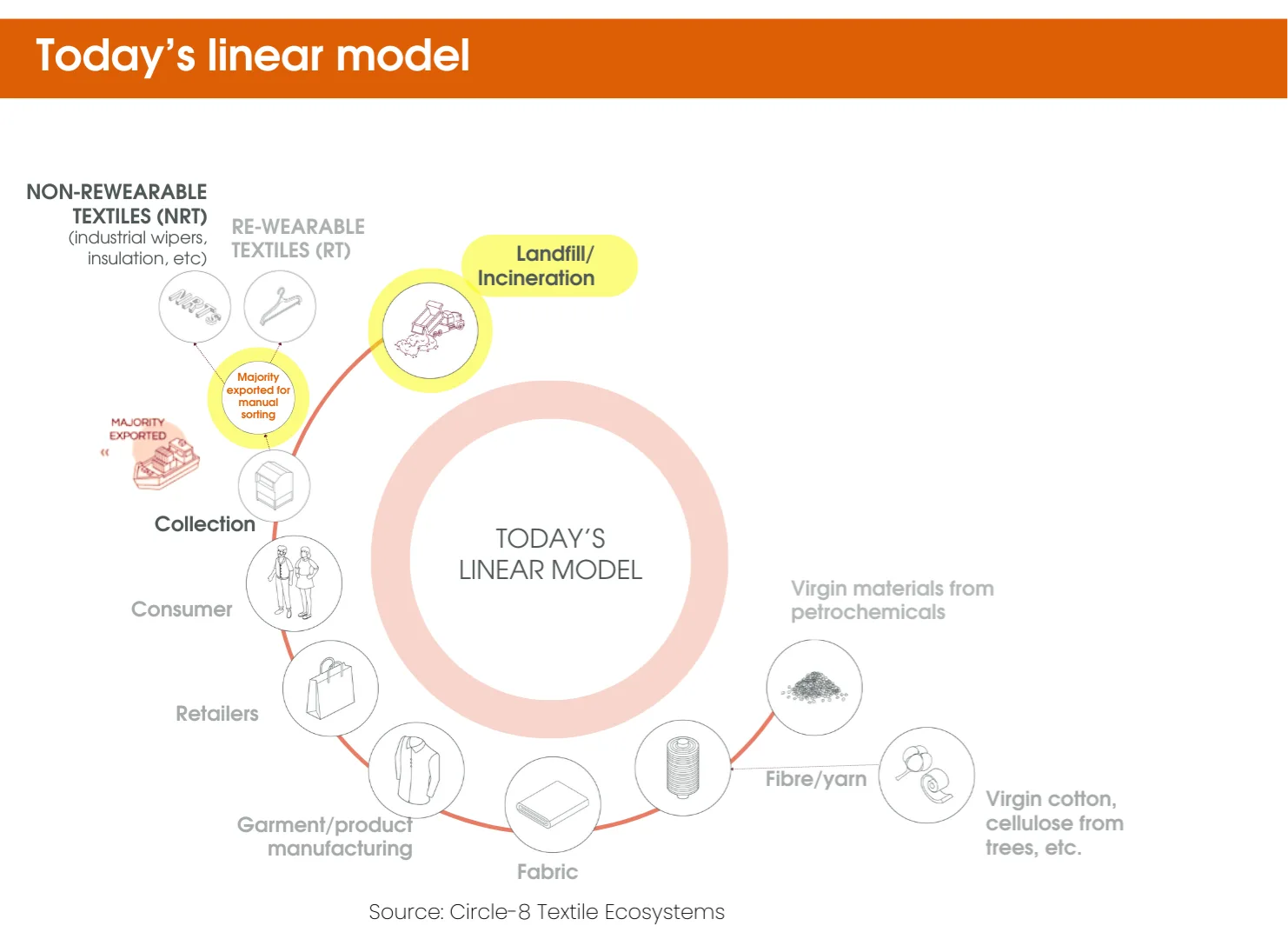
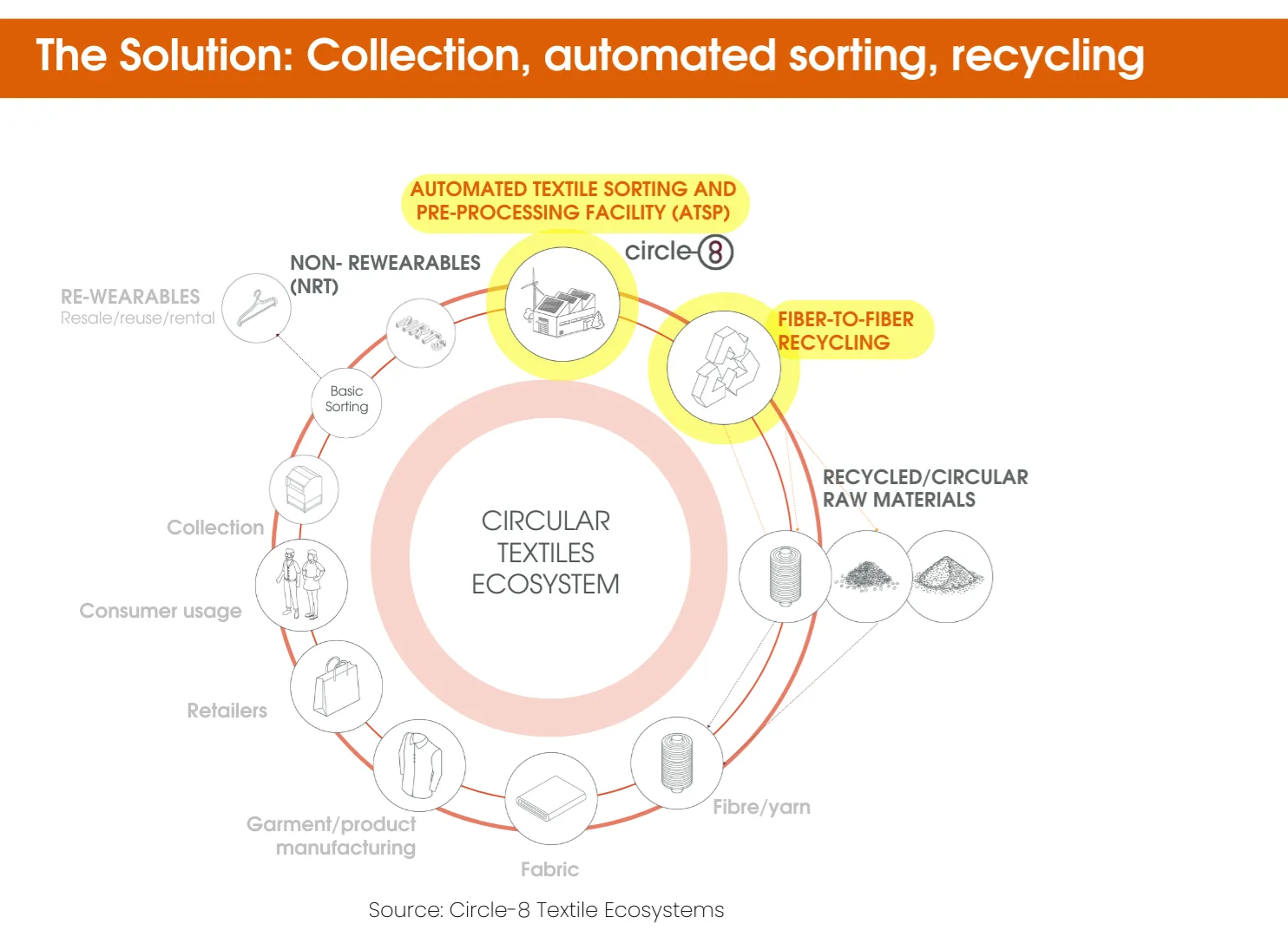


Source: Circle-8 Textile Ecosystems
Long Term Vision
As more and more textile-to-textile recycling processes become available in the UK, our goal is to ensure all worn-out clothing and textiles are captured and put back into use to create new clothing. Breaking down worn-out textiles will help to create valuable resources that can be used by the fashion and textiles industry here in the UK, and around the world.
This ambition will bring economic and environmental benefits in many ways:
- We can prevent the growing mountains of textiles going to landfill (and incineration) while simultaneously producing materials for making new textiles. (Turning waste into resource!)
- This will help in replacing the use of virgin resources, like oil (to make polyester) and cotton, both of which take up vast amounts of energy, water and land.
- We can turn our worn-out clothing into new materials right here in the UK, rather than shipping them abroad, thereby reducing the carbon footprint from logistics.
- We also reduce the impact on other countries which may not have the recycling infrastructure to process the clothes. So our clothes won’t end up as waste again, just somewhere else.
- By extending the lifetime of clothes as recycled fibres, we reduce the overall carbon dioxide emissions of the fashion industry.
Find Out More
The ‘ACT Take Back’ initiative is part of the Automatic sorting for Circularity in Textiles (ACT UK) project, which is supported and funded by Innovate UK, the UK’s national innovation agency.
Led by the UK Fashion and Textiles Association (UKFT), ACT UK is a consortium of fashion, textiles and recycling experts working to develop the framework towards the first UK-based Automated-sorting Textiles and Pre-processing (ATSP) facility that will process clothing unsuitable for re-sale and redirect it to existing and new recycling processes.
The collection trials were led by Reskinned with support from UKFT, Circle-8 Textile Ecosystems and the WRAP. These trials were delivered by a team of brands, industry associations, collectors and sorters who are looking for ways to redirect clothing and textiles that are unsuitable for re-sale (Non-Reusable Textiles or NRT) from household waste to the ATSP.
If you want to learn more about ACT and how you can contribute, check here ACT Dissemination website
With contribution from
